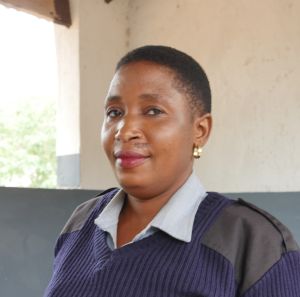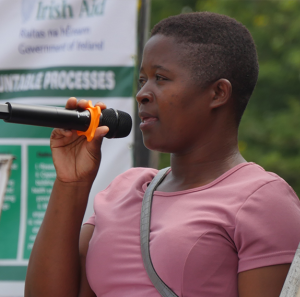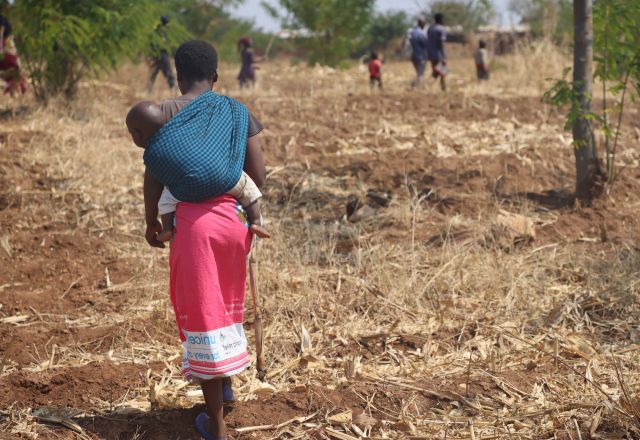
Irish Aid
Irish Aid is the Government of Ireland's official international development aid programme
Irish Aid
Every day you are part of Ireland’s efforts to tackle poverty, inequality, discrimination, conflict and climate change worldwide. Through Ireland’s overseas development programme, Irish Aid, the Irish people contribute a small portion of their taxes to support development and humanitarian work carried out by organisations like us at Oxfam Ireland.
Ireland's Civil Society Partnership Programme (ICSP 2023 - 2027)
The goal of this programme is that communities can live free from poverty, violence and discrimination. We will engage directly with 226,000 people, to help communities realise their rights, exercise leadership and build resilience.
We don't turn our backs when a crisis has passed. We work with communities to respond with humanitarian aid in response to disaster or conflict, and we stick around, helping communities to rebuild by providing development aid..
The programme will deliver across four impact areas which are;
- food and income security,
- rights, protection and accountability,
- enhanced humanitarian action and local leadership,
- a humanitarian-development-peace approach.
Our project here will directly reach 37,970 women, youth and other vulnerable people. They are from mining and pastoralist communities, living under extreme poverty and facing severe labour rights violations.
Our work will focus on governance and accountability for;
- effective service delivery,
- promotion of women’s rights,
- enhanced local capacity for effective disaster preparedness and response,
- improved income and food security.
Spotlight on: Resource Rights Africa (RRA)
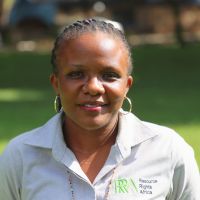
Fridah Musiime - Head of Programmes at Resource Rights Africa
RRA was formed in 2016 and they work to empower people in local communities to live a dignified life by helping them know their rights, specifically around natural resources. RRA does education and advocacy to help make sure that natural resources are equitably distributed and that there is no abuse of power by those who control these resources.
It mainly works around mining, gas and mineral resources, but also forests and water resources.
There are 51 different minerals in Karamoja, where RRA work. The most common are gold, marble and limestone. RRA works with communities to help them to make the most of these resources.
“First of all, empower them with information about these resources and their rights over these resources,” says Fridah. “If they have the information, they are able to demand transparency and accountability from people who are utilising these resources.”
Our project here will reach 67,500 people directly from 15,000 households in some of the poorest communities.
We will partner with the government, as well as national and local non-governmental organisations to;
- improve access to services for those who have experienced gender based violence,
- increase the part women and girls play in decision making,
- promote gender equality,
- promote resilient livelihoods.
Spotlight on: Concerned Youth Organisation
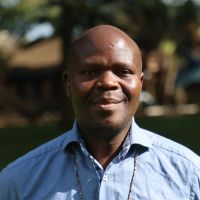
Harvey Chimaliro, Executive Director of Concerned Youth Organisation (CYO)
"With this funding we are able to implement and reach out to those people that need to be supported" - says Harvey Chimaliro, Executive Director of Concerned Youth Organisation (CYO), our partner in Malawi.
Conerned Youth Organisation (CYO) was set up in 2002 by young people who wanted to address the challenges facing them, and especially those facing young women.
“We focus on youth and women,” says Harvey.
The organisation’s main areas of work are in youth economic empowerment, the environment and climate change, gender, human rights and health.
For the work CYO is carrying out with Oxfam and the Irish Aid grant, gender is the main theme.
“In gender justice we are focusing on strengthening local structures,” notes Harvey.
CYO train people on committees that carry out assessments for gender- based violence. They deliver specific training for the area where they are working. This means working with courts, the victim support unit in the police, social welfare departments and other services.
Harvey notes that this collaborative approach is to ensure that they all “work together to address the challenges” that exist in these communities. CYO plans to place an emphasis on empowering women in leadership by providing leadership skills training in the future.
Harvey notes that getting funding and resources can be a challenge. Working with Oxfam under the Irish Aid grant means that CYO have the resources to address issues in communities. The funding means that they can actually do what they set out to do.
“With this funding we are able to implement and reach out to those people that need to be supported,” continues Harvey. “This also empowers young people that they can be trusted."
Our projects here will reach 18,900 people directly. These people include women, youth and people living with disabilities from communities which are prone to climate shocks and natural disasters.
We will partner with local non-governmental organisations to help vulnerable communities to;
- move away from food insecurity,
- get to a place of resilience, where they are less dependent on humanitarian aid,
- address gender based violence,
- realise their rights.
Spotlight on: Women's Academy for Leadership and Political Excellence (WALPE)
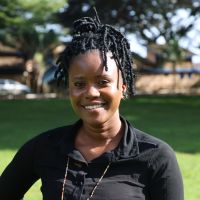
Margret Zinhumwe, Programmes Manager at Women's Academy for Leadership and Political Excellence (WALPE)
“Most of these women have good leadership qualities, but the reason they’re not taking up leadership positions is they’re not economically strong to fund their leadership activities,” - Margret Zinhumwe, Programmes Manager at Women's Academy for Leadership and Political Excellence (WALPE), our partner in Zimbabwe
WALPE was set up in 2018, as a direct response to the outcome of the election in Zimbabwe.
“It was founded after we realised that women were not fully represented in the 2018 elections,” says Margret. “Our organisation is premised on capacity building, advocacy and lobbying and knowledge building.”
Getting more women to get into politics and run for the next election is WALPE’s goal. It works to give women the skills to take up leadership positions at all levels, whether that be in politics, or within their communities. Church leadership, village leadership and leadership in other areas is all encouraged, as this gives women experience if they decide to run for parliament.
As well as leadership skills training, WALPE also delivers business or social entrepreneurship training. This covers business management, how to run a business and how to run a project.
“We assume once they are leaders they’ll be running projects,” comments Margret.
The idea is that if they can set up businesses and make profit, they will have the skills to become leaders, and also the funds to do this.
Margret explains that to run for the presidency in Zimbabwe, it costs $20,000USD. To contest to be a member of parliament it costs $1,000USD and to be a senator or councillor, people must pay $100USD.
“Most women are stay at home wives, they can’t raise that money,” Margret notes.
WALPE also organises visits so that the women they work with can see other women participating in politics. Last year, they visited Kenya to see how elections work there
Our project here will reach 15,600 people directly from vulnerable households. These include households headed by women, elderly people and even children.
We will work with partners to;
- promote local humanitarian leadership,
- anticipate crises so that communities can act quickly,
- improve agriculture and food systems,
- promote women’s leadership,
- promote economic empowerment,
- end violence against women and girls.
Spotlight on: Nutri Aid Trust
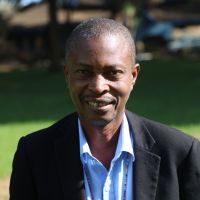
Peter Manda, Country Director of Nutri Aid Trust
“We want humanitarian efforts to be the last resort,” says Peter Manda, Country Director of Nutri Aid Trust, our partner in Zambia.
Nutri Aid Trust was set up in 2007 and works with smallholder farmers. “Our core business is working with smallholder farmers, strengthening their linkages to input markets, and output markets and strengthening their adaptive and resilience capacity around climate change,” notes Peter.
They teach farmers different technologies and practices so that they can be more resilient to climate change.
“We teach agricultural management practices,” he continues. “This is with the view that farmers can earn some income through markets and can further reinforce the resilience and food security issues. We want humanitarian efforts to be the last resort.”
If people can grow their own food, they will have more surplus income to help minimise the need for humanitarian support.
“Our primary target group is women and youth,” says Peter.
Farmer field schools, as well as training and learning events are just some of the ways that the organisation helps people.
Peter notes that the extra support from Oxfam will help Nutri Aid Trust to expand its operations
Our project here will reach 34,800 people directly, especially women and youth from pastoralist communities. These communities are affected by frequent droughts. They also experience high levels of food insecurity, conflict and gender inequalities.
We will work with local partners to support the needs of these communities across the themes of;
- water,
- sustainable livelihoods,
- peace building.
Spotlight on: Candlelight
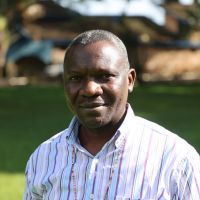
Elijah Mulumba, Programme Manager of Candlelight
“The contribution from Oxfam to Candlelight is immense,” says Elijah Mulumba, Programme Manager of Candlelight, our partner in Somalia and Somalilan
Candlelight works with people in communities who are living in extremely difficult circumstances.
“Sometimes when it’s too bad, they basically have nothing left, because they are living off humanitarian support, like Cash Transfers,” says Elijah.
Candlelight was set up in 1995 and works across all of Somaliland. The organisation works in the areas of environment and livelihoods, education, and health. They respond to gender and humanitarian issues across all these areas.
“In our humanitarian response, we do WASH (Water, Sanitation and Hygiene programmes), protection, food security and livelihood, sometimes we also do health with mobile teams,” continues Elijah. “We do humanitarian response across the different thematic areas. We do development and resilience building interventions as well.”
Part of this development work is their work in education, as Candlelight run primary schools. They also run vocational centres, where they deliver training for different skills.
Elijah notes what the partnership with Oxfam has meant to Candlelight.
“Oxfam has supported a number of local organisations to grow,” continues Elijah.
He notes that some ways Oxfam has assisted Candlelight is with capacity strengthening and helping the organisation to grow, as well as funding opportunities.
Our project here will directly reach 24,000 people in communities most affected by armed conflicts.
With our partners we will work to;
- deliver a strategy to contribute to peace, stability, poverty reduction and the protection of civilians,
- provide support to communities to help them overcome crises and challenges.
Spotlight on: Solidarité pour la Promotion Sociale et la Paix
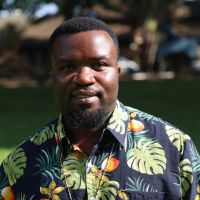
César Ngango Lumoo, Programme Protection Manager of Solidarité pour la Promotion Sociale et la Paix (SOPROP)
“We teach communities how to identify conflict, how to warn with warning systems and how to resolve conflict,” César Ngango Lumoo, Programme Protection Manager of Solidarité pour la Promotion Sociale et la Paix (SOPROP), our partner in Democratic Republic of the Congo (DRC).
Translated to Solidarity for Social Promotion and Peace, SOPROP “is an organisation that defends and protects human rights,” explains César.
They cover six communities in eastern DRC and implement several projects, with the Oxfam project under Irish Aid being one of these.
This project is mainly about community protection and livelihoods.
As an organisation, SOPROP works to help people build their understanding on what rights they have, so that they can interact with law enforcers and other authorities.
“We do capacity building on knowledge of law and the rights that protect people,” continues César.
A major part of their work is around teaching people how to get information, where to get it and making sure people are empowered by this knowledge.
“We have benefitted a lot from Oxfam,” says César.
He lists capacity building on management, human resources and finance as ways Oxfam have benefitted SOPROP. He notes that this involves Oxfam helping them with their MEAL (Monitoring, Evaluation, Accountability and Learning) capacity.
Our project here will directly reach 27,000 returnees (people who left as refugees, but are returning), internally displaced persons and host communities.
We will work with partners to help people in these conflict-affected communities.
With our partners, we will help to ensure that people, especially women and youth, will have improved resilience from disasters under the themes of;
- integrated food security,
- climate resilience,
- gender,
- good governance,
- peace building interventions.
History Of Irish Aid Support
PG2 built on the successes, experiences and cross-learning from PGI. We have focused in delivering on three core objectives:
- Increased economic empowerment for women and youth. We worked with partners, women and youth to increase employment opportunities, access to productive markets and business capital, farming and business skills and personal agency and leadership ability. More broadly, the programme aims to encourage the adoption of pro-poor policy and budget allocation at local and national levels.
- Greater gender equality. We worked with partners to decrease gender-based violence (GBV) in communities by providing capacity building to GBV service providers, raising local awareness towards behavioural and attitudinal change while also increasing women's leadership and participation across all levels and improving the policy and legislative framework pertaining to gender equality.
- Increased access to essential health services through holding duty bearers to account. We worked through partners with poor and marginalised people to improve local health facilities by providing capacity building to duty bearers; government officials, district health care officers and healthcare personnel, lobbying on supply chain and responsiveness of local providers and advocating for universal health care and increased budgetary support for health. Malawi is the only country to work on this objective.
Through our PGII programme in Tanzania, Rwanda, Zimbabwe, Uganda and Malawi we have engaged 39 implementing partners and reached an average of 75,000 people annually from 2017-2022, with economic empowerment activities for women and youth to increase levels of income, ownership of productive assets and access to employment, capital, training, markets, and technologies. We also contributed to greater gender equality, for example, by reaching 7M people with a campaign about gender-based violence (GBV) in 2022, to help increase awareness and understanding of the causes and consequence of GBV. In Malawi we worked to increase access to universal healthcare, and in all PGII countries, our influencing work sought to ensure that national legislative frameworks were in place and implemented to support pro-poor development.
The Irish Aid (IA)/Oxfam Ireland (OIE) funded development programme operated in 5 countries in East, Central and Southern Africa: Tanzania, Rwanda, Zimbabwe, Malawi, and South Africa. The purpose of the programme is to improve quality of life and wellbeing of targeted communities due to better and more secure livelihoods, greater gender equality, access to appropriate services and a reduction in the burden of HIV/AIDS. The programme has 3 outcomes streams: women and men realize their right to secure and sustainable livelihoods; women and girls gain power over their lives and live free from violence; and the incidence and impact of HIV/AIDS is reduced.
We worked across micro, meso and macro levels to promote the empowerment of women and girls in a manner that addressed immediate and pressing needs while also challenging deep-rooted, generational gender inequality. We recorded significant success across all three levels including:
- Changing legislation – in Tanzania, we facilitated 3,000 women to engage with the 2013/14 constitutional review process in. 11 out of the 12 issues advocated by the women were included in the draft constitution. This provided a basis for review of existing laws and the creation of new laws that benefit women and end discrimination.
- Access to Resources - in Rwanda we worked with micro-finance institutions (MFI) to make €253,250 available to small holder farmers to enable them to engage in new enterprises.
- Changing beliefs and behaviours - in Zimbabwe the percentage of women seeking legal and paralegal support after experiencing GBV and other harmful social practice increase by 7% during the first two years of the programme from 24% to 31%.
Our Programme Partners
We work with our partners to deliver development, humanitarian and influencing programmes.
International Reach
We’re one of 22 Oxfam organisations working together in 77 countries.
Safeguarding in Action
Keeping people safe is a vital part of our work worldwide.
